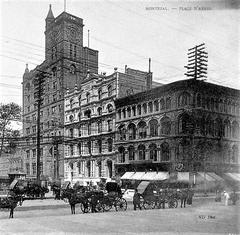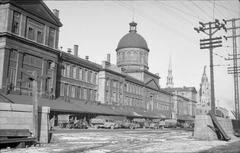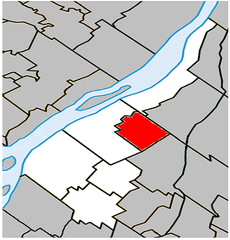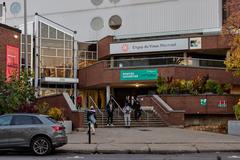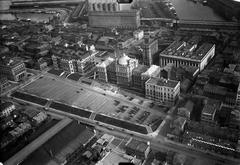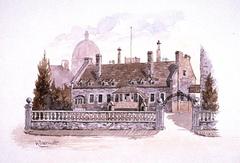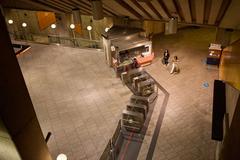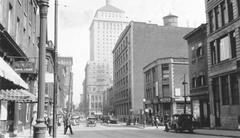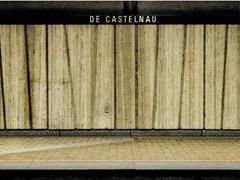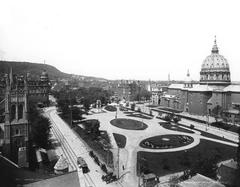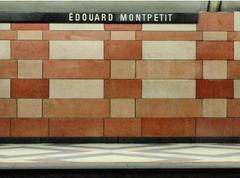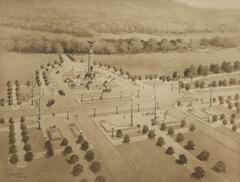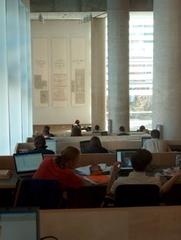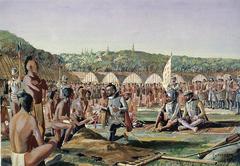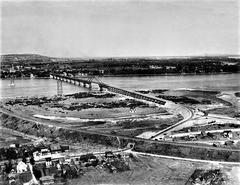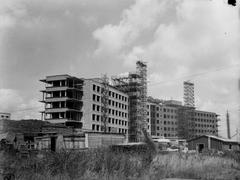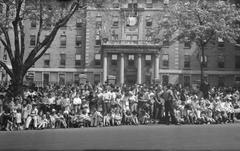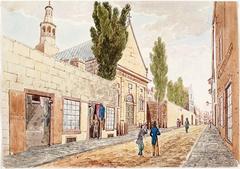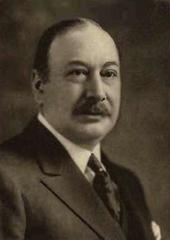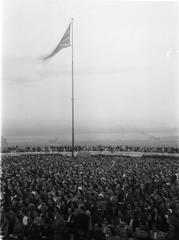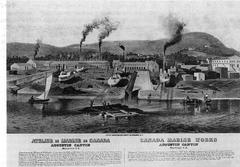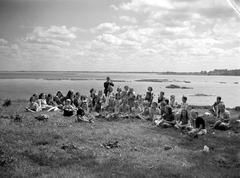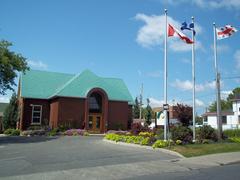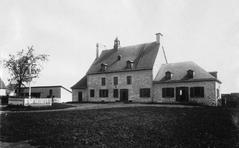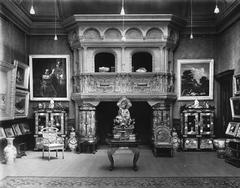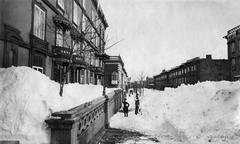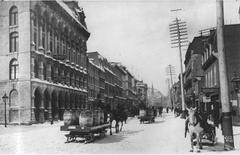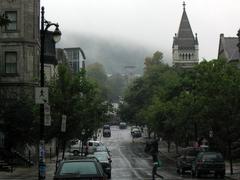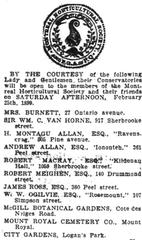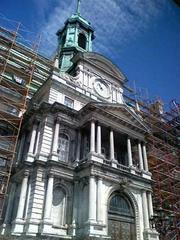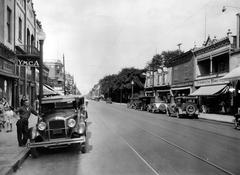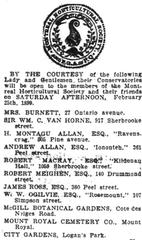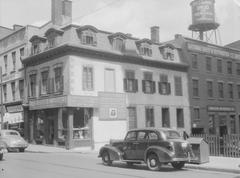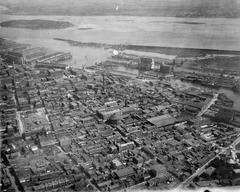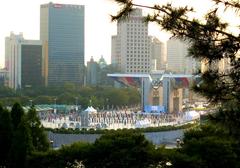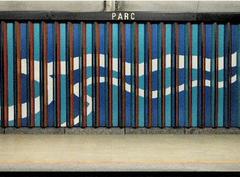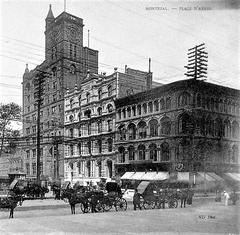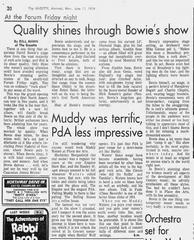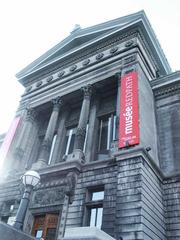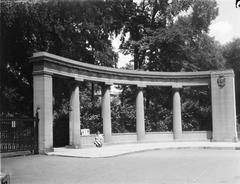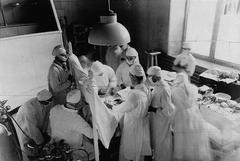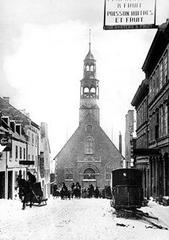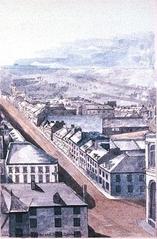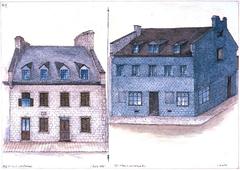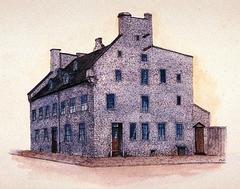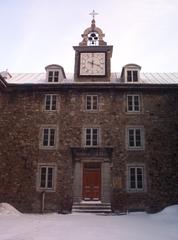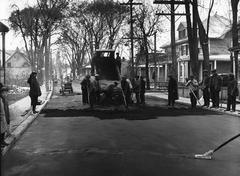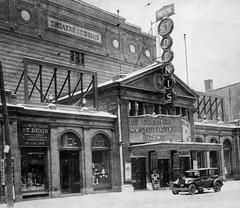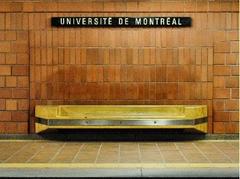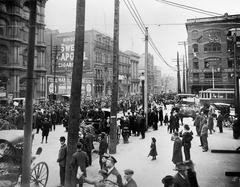Allan Memorial Institute Montreal: Historical Site Guide, Visiting Hours, and Legacy
Date: 04/07/2025
Introduction
Overlooking the lush slopes of Mount Royal in Montreal’s storied Golden Square Mile, the Allan Memorial Institute (AMI) is a landmark that fuses striking architectural grandeur with a multifaceted psychiatric legacy. Once known as Ravenscrag—a stately Victorian mansion built for shipping magnate Sir Hugh Allan—the AMI became a pioneering psychiatric hospital, a center of controversial Cold War experiments, and today, a site of ongoing research and academic activity. While the Allan Memorial Institute is closed to general public tours, its history, location, and cultural significance continue to captivate scholars, visitors, and those interested in Montreal’s historical sites.
This guide offers a detailed look at the AMI’s origins, its pivotal role in psychiatric care, the shadow of the MKULTRA experiments, and practical information for those wishing to experience the site’s exterior or nearby attractions. Whether you are a historian, traveler, or mental health advocate, this comprehensive overview will help you explore the AMI’s enduring legacy.
Contents
- Origins and Architectural Heritage
- Psychiatric Innovations and Institutional Role
- The MKULTRA Experiments: Controversy and Legacy
- Visiting the Allan Memorial Institute
- Visiting Hours and Ticketing
- Accessibility and Travel Tips
- Nearby Attractions
- Academic Activity and Research
- Haunted Reputation and Cultural Impact
- Frequently Asked Questions (FAQ)
- Summary and Travel Tips
- References
Origins and Architectural Heritage
The Allan Memorial Institute is housed in the historic Ravenscrag mansion, constructed from 1861–1864 for Sir Hugh Allan, a towering figure in Canadian shipping and finance. Designed by architects Victor Roy and John Hopkins, Ravenscrag exemplifies the Italianate villa style, with a dramatic tower, ornate entrance halls, ballrooms, and wood-paneled libraries (McGill Campus Buildings). The estate, which once sprawled over fourteen acres, reflected the wealth and social stature of the Allan family.
After Sir Hugh’s death, his son Montagu Allan expanded and redecorated the mansion, which remained a family residence until Lady Marguerite Allan donated Ravenscrag to the Royal Victoria Hospital in 1940 (Heritage Montreal). In 1943, it was repurposed and renamed the Allan Memorial Institute, beginning its new life as a psychiatric hospital and research institution (Montreal in Pictures).
Psychiatric Innovations and Institutional Role
The AMI was established in 1943 as the psychiatric division of the Royal Victoria Hospital and McGill University’s Department of Psychiatry (McGill Psychiatry History). It quickly gained a reputation for innovation, opening the world’s first psychiatric day hospital in 1946 and integrating clinical care, research, and education. Under the leadership of figures like Dr. Donald Ewen Cameron, the institute became an international hub for new psychiatric treatments, including electroconvulsive therapy (ECT), psychotropic drugs, and research into sensory deprivation (MUHC Archives).
After the closure of its inpatient services in 2015, the AMI shifted focus to outpatient care, psychiatric research, and academic administration within McGill University (McGill Psychiatry Department).
The MKULTRA Experiments: Controversy and Legacy
Between the late 1940s and mid-1960s, the AMI was the site of the infamous MKULTRA experiments, led by Dr. Donald Ewen Cameron and funded by the CIA and Canadian government (The Maple; CBC News). Through techniques such as “psychic driving,” chemically induced comas, repeated ECT, sensory deprivation, and experimental drug administration, these experiments aimed to “depattern” and reprogram patients—often without informed consent. Many patients suffered long-term trauma, and legal actions by survivors and families continue to this day (Class Action Details; CBC News).
The AMI’s legacy is now a subject of academic study, ethical debate, and reconciliation efforts, particularly as redevelopment of the site raises concerns among Indigenous groups about historical mistreatment and possible unmarked graves (Montreal Indigenous Community Statements).
Visiting the Allan Memorial Institute
Visiting Hours and Ticketing
The Allan Memorial Institute is not open to the general public for tours or casual visits. Due to its function as an academic and research facility, there are no ticketed admissions or regular visiting hours. However, the building’s imposing exterior and location within the former Royal Victoria Hospital grounds can be viewed and photographed from public areas on Pine Avenue.
Occasionally, special academic events or heritage tours may be organized in collaboration with McGill University or local organizations. For the latest opportunities, check McGill’s event listings or contact the Department of Psychiatry.
Accessibility and Travel Tips
- Transit: The AMI is easily accessible via Montreal’s public transit system, with several bus routes and the McGill metro station nearby. Parking is limited in the area.
- On Foot: The site is best visited on foot, especially when exploring adjacent attractions within the Golden Square Mile.
- Accessibility: The building and campus have wheelchair-accessible paths and facilities. For visitors with mobility needs, check McGill’s accessibility resources for up-to-date information.
Nearby Attractions
- Mount Royal Park: Enjoy panoramic city views and walking trails.
- McGill University Campus: Explore historic buildings and the Redpath Museum.
- Montreal Museum of Fine Arts: A renowned cultural institution nearby.
- Plateau Mont-Royal: Known for its vibrant arts, cafes, and shops.
For more about public transit, see Montreal Public Transit and City of Montreal Tourism Site.
Academic Activity and Research
The AMI remains an important center for psychiatric research, education, and archives. The McGill University Department of Psychiatry continues to conduct clinical studies, train mental health professionals, and host academic events (McGill Psychiatry Research). The building’s archives are significant for research into medical history and ethics.
Haunted Reputation and Cultural Impact
The Allan Memorial Institute’s turbulent history—particularly the MKULTRA era—has given rise to tales of hauntings, unexplained phenomena, and ghostly legends. Paranormal enthusiasts and local walking tours often feature the AMI as a key stop, recounting stories of disembodied voices and mysterious happenings (Haunted Montreal). While not an official tourist attraction, the building’s exterior continues to intrigue visitors interested in Montreal’s supernatural lore.
Frequently Asked Questions (FAQ)
Q: Can I tour the Allan Memorial Institute?
A: No, the AMI is not open for regular public tours. You may view and photograph the exterior from public spaces.
Q: Are tickets required for entry?
A: No tickets are available, as the facility is not open to the public.
Q: Is the site accessible for people with disabilities?
A: The surrounding campus and public areas are wheelchair accessible.
Q: Are guided tours available?
A: Occasionally, external walking tours include the AMI’s exterior. Check with local heritage or ghost tour organizations.
Q: What are nearby historical sites to visit?
A: Mount Royal Park, McGill University, the Montreal Museum of Fine Arts, and the Plateau Mont-Royal neighborhood.
Visuals and Interactive Elements

For a virtual campus tour and more images, visit McGill Virtual Tours.
Summary and Travel Tips
The Allan Memorial Institute endures as a complex chapter in Montreal’s history. Once a beacon of psychiatric innovation and the site of painful ethical breaches, it today remains closed to the public but accessible for exterior viewing. Its impressive architecture, proximity to other historical landmarks, and haunted reputation make it a compelling destination for history buffs and the curious alike.
Travel Tip: Plan to combine your visit with neighboring sites, use public transit, and check McGill University’s resources for any special events or updates.
Enhance your exploration of Montreal’s historical sites with the Audiala app, offering guided audio tours and up-to-date information.
References
- McGill Campus Buildings, 2025, McGill University
- Heritage Montreal, 2025
- Montreal in Pictures, 2013
- McGill Psychiatry History, 2025, McGill University
- MUHC Archives, 2025
- The Maple, 2025
- CBC News, 2025
- Class Action Details, 2025
- Montreal Indigenous Community Statements, 2025
- Haunted Montreal, 2025
- The Canadian Encyclopedia, 2025
- CBC News, 2025
For more on Montreal’s historical sites and psychiatric history, download the Audiala app and follow us on social media for updates and exclusive content.




